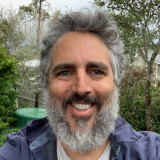
There are many experiences I’ve had throughout my life, and throughout my medical training, that helped make me the doctor and person that I am today. I’ve tried to learn from the good and bad experiences, and from the smart and poor life choices I’ve made along the way. I’d like to share the single most impactful piece advice that I’ve ever received as a physician. It is a story that I’ve retold many times to the residents I’ve trained. And this is something that profoundly changed the way I think of what it means to be a doctor.
One night, during my second year of family medicine residency training, I was on “Night Float” covering labor and delivery. A baby was born prematurely via an emergency C-section after showing signs of severe distress. Despite our best efforts, tragically, the baby died several days after delivery. There were a series of internal reviews that followed, analyzing how things were handled — appropriate fetal monitoring, timing and communication of the code called, who showed up and when, and how well the attending supervised and monitored the patient. When this process was complete, it was determined that, overall, the care was appropriate, and my actions met the standard of care expected. In other words, I hadn’t made any serious errors.
This process was extremely stressful. While I was relieved with the outcome of the review, instead of feeling relief, I felt sadness, depression, self-doubt, and fear. I was afraid that I wasn’t cut out for this type of work, that I’d picked the wrong profession. If I felt that bad when I hadn’t made a mistake, I couldn’t possibly imagine how I would handle a situation where I was at fault. Everybody makes mistakes, we are all human, and it is to be expected. Unlike most other professions, when physicians make mistakes, sometimes people are hurt, and sometimes they die. The enormous amount of pressure that could go along with that realization hit me full force.
I went to one of my most respected mentors, an attending at my hospital, Dr. Alan Santell. He was a dedicated, smart, wise, and kind physician who had been at my training program for decades. He passed away a few years ago and is sorely missed by all those whose lives he has touched. I took him aside and opened up about my feelings. What he shared with me in just a few sentences truly changed who I am as a person and who I strive to be as a physician.
He told me that we, as medical providers, were very fortunate to be in our positions. We can provide the care we provide only because of the hard work, trial and error, and wisdom of those that came before us. An enormous amount of resources went into giving us the collective knowledge that we have available to us. All we can do is our best based on the information we have. Sometimes good things will result, sometimes bad. When we’ve tried our best, we cannot “own” the bad outcomes, and in fact, it is egotistical to think we have that much power. We cannot allow tragedies to deform our being and self-worth.
He continued, saying that this was the easier part and that we need to take it a step further. If we aren’t going to own the defeats, then we certainly can’t own the victories. When we have “good” outcomes, when we are praised for “saving a life,” we can’t take that credit either, and we can’t allow it to distort and fuel our egos.
I’m almost 50 years old, and the longer I practice, the more I’ve come to appreciate what Dr. Santell taught me that day. I’ve had this philosophy tested many times throughout my career, and I’ve caught myself erring on both sides — sometimes taking on too much of both good and bad results. It is a constant struggle that takes humility, vigilance, and the time and space for self-reflection to avoid the pitfalls of “owning” patient outcomes.
Recently, I treated a young woman in her 20s who presented with a mild cough most consistent with allergies, but also with dyspnea on exertion that seemed disproportionate to that diagnosis. After checking her O2 saturation with a walk test and seeing it go down to 82%, I sent her to the ER to be worked up for a pulmonary embolism. Later that week, I found out that this was indeed what she had when she came back to the clinic to “thank that brilliant doctor who saved my life." Of course, that felt good, who doesn’t like being told they are smart, and who doesn’t like to be right? As much as I wanted to own that “victory,” I knew deep inside that I couldn't. If I let that one in, then I’m opening myself for the bad ones to enter too.
I can still feel, in the pit of my stomach, how awful it felt when that baby died. I’ll always question if there was something that I could have done better. But I know I’ll have a better chance at keeping my ego in check, nurturing humbleness, and being a better physician and human being if I can maintain a healthy work-life balance, and if I always keep in mind what Dr. Santell taught me.
Dr. Sasson is a family practice physician practicing in Monterey, California. He is honored to be a part of a team of dedicated colleagues caring for veterans, serving as the medical director of the VA-DoD Gourley Outpatient Clinic for the Department of Veterans Affairs. His particular areas of interest include chronic pain, substance abuse, PTSD, depression, women’s health, and physician well-being.






